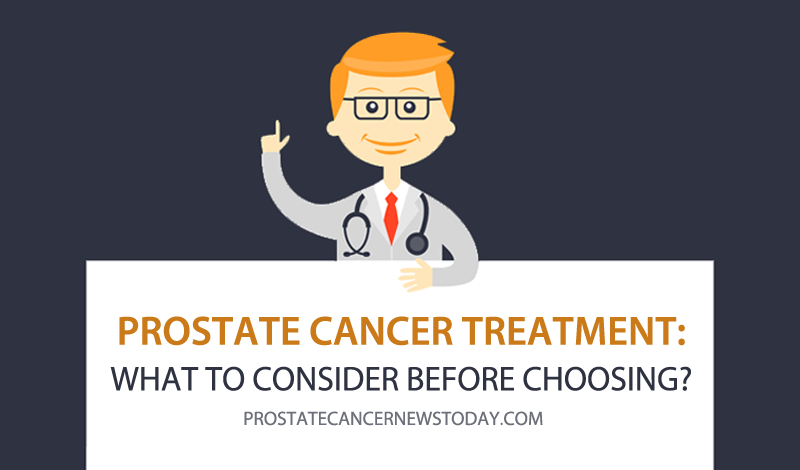In many cases of men who are faced with a diagnosis of prostate cancer, the disease is caught early and patients are able to choose, together with their physician, their course of treatment. Depending on the patient’s age and overall health, as well as tumor’s stage, treatment options for patients with prostate cancer include watchful waiting or active surveillance, surgery, radiation therapy, cryotherapy (cryosurgery), hormone therapy, chemotherapy, vaccine treatment, and/or bone-directed treatment.
The satisfaction of men with their treatment for prostate cancer has recently been questioned during the Urological Society of Australia and New Zealand’s annual scientific meeting on the Gold Coast. The problematic was raised by the professor and chairman of the department of urology at the University of Texas, Claus Roehrborn, who believes that studies currently made on the results of prostate cancer treatment underestimate the level of regret, including distressing effects.
“A year after a radical prostatectomy, 15 per cent of men will still be leaking urine in some way, and of those who enjoyed full potency before the operation, only one in six will have resumed sexual activity,” said professor Roehrborn as an example to The Australian Financial Review. “On the surface, it looks like the world is in order. We do the treatments and the patients understand there are consequences, and in the end, they say it’s all good and they made the right decision.”
Therefore, it is important for men to understand the implications of each option and consider a series of factors before choosing a course of treatment. The American Cancer Society has set a list of parameters to guide a man’s decision. It’s recommended that men ask themselves certain questions before making any decision. These include:
- If the patient feels like it’s important to act immediately against the cancer, even with all the possible side effects at stake, or would the patient feel comfortable with watchful waiting even with the anxiety related to the future?
- If the patient needs to know immediately how confident their doctor is that all the cancer will be removed during surgery, or if he’s comfortable not knowing the results until the end of a treatment such as radiation therapy?
- Does the patient prefer more innovative technology such as robotic surgery or proton beam radiation therapy, or prefer a more traditional course of treatment with results proven for years and performed more often by the physicians?
- Which side effects from the different treatments could cause more distress?
- How important is the amount of time spent during treatments and in recovery?
- And, what would be the patient’s options if the initial treatment does not have the excepted results?
“Choosing among treatment options is complicated even further by the development of newer types of surgery (such as robotic-assisted prostatectomy) and radiation therapy (such as proton beam radiation) in recent years. Many of these seem very promising, but there is very little long-term data on them, which means comparing their effectiveness and possible side effects is difficult, if not impossible.” stated the society.
However, it is also determinant that patients listen to their physician, take their opinion into consideration and discuss all the options with them. Seeking a second opinion may also be helpful and the American Cancer Society and other prostate cancer organizations offer support programs for patients to meet each other and discuss issues related to the disease.
Learn more about prostate cancer: http://bit.ly/1MlKABv
Prostate Cancer News Today is strictly a news and information website about the disease. It does not provide medical advice, diagnosis or treatment. This content is not intended to be a substitute for professional medical advice, diagnosis, or treatment. Always seek the advice of your physician or other qualified health provider with any questions you may have regarding a medical condition. Never disregard professional medical advice or delay in seeking it because of something you have read on this website.

